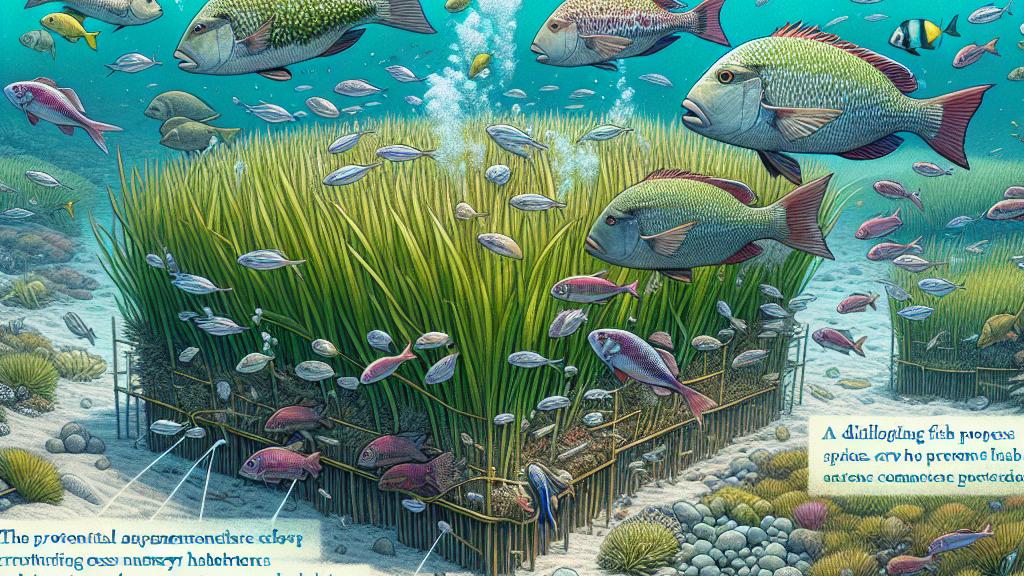The Role of Bacterial Communities in Seagrass Ecosystems
Overview
- Bacterial communities on seagrass are essential for reducing harmful pathogens in coastal waters, enhancing marine health.
- Seagrass meadows serve as critical habitats, storing carbon and supporting a rich diversity of marine life, which are vital for ecological stability.
- Human activities, including pollution and overfishing, threaten these ecosystems, posing serious risks to both marine biodiversity and public health.

The Vital Role of Seagrass in Marine Life
Seagrass ecosystems, found in shallow coastal waters across continents except Antarctica, play a crucial role in maintaining marine biodiversity. Often dubbed the "lungs of the ocean," seagrasses undergo photosynthesis, producing essential oxygen while harboring diverse marine life. For instance, in the lush waters of the Caribbean, seagrass beds are critical nursery habitats for young fish species, such as parrotfish and snapper. Beyond providing a safe space for these young creatures, they stabilize sediments and prevent coastal erosion, making them invaluable in combating the adverse effects of climate change. Without these submerged gardens, many fish populations could dwindle, ultimately impacting local fisheries and the economic welfare of communities that depend on them for their livelihoods.
The Antibiotic Potential of Seagrass Microbiomes
What lies beneath the surface of seagrass meadows is as fascinating as the meadows themselves—the microbial communities on seagrass leaves. Recent investigations, especially studies on Zostera marina in the Baltic Sea, reveal an astonishing ability of these bacteria to suppress harmful pathogens. These microorganisms can effectively combat bacteria like Vibrio, known for causing severe illnesses, by producing natural antibiotics that often outperform those found in commercial products. This revelation not only emphasizes the remarkable chemistry of nature but also offers potential new solutions in our fight against antibiotic resistance, a growing health crisis worldwide. Picture this: the bacteria living on seagrass may hold the key to future medicinal breakthroughs, revealing yet another reason to prioritize the protection of these ecosystems.
Confronting Threats to Marine Ecosystems
Despite their importance, seagrass meadows face overwhelming threats from human actions. Pollution, largely from plastics and agricultural runoff, inundates these beautiful underwater worlds, introducing harmful toxins that can devastate marine life. Climate change compounds these challenges; rising ocean temperatures and acidification lead to detrimental effects on coral reefs, which often exist alongside seagrass habitats. Recent studies have shown that increased water temperatures allow pathogens such as Vibrio species to thrive, posing serious health risks to beachgoers and seafood consumers alike. This highlights the vital connection between healthy ecosystems and human well-being. To safeguard our oceans, it is essential that we adopt sustainable fishing practices, advocate for cleaner oceans, and restore damaged habitats. By promoting marine conservation efforts, we can create a healthier environment for both aquatic life and ourselves, ensuring these underwater wonders continue to flourish for generations to come.

Loading...